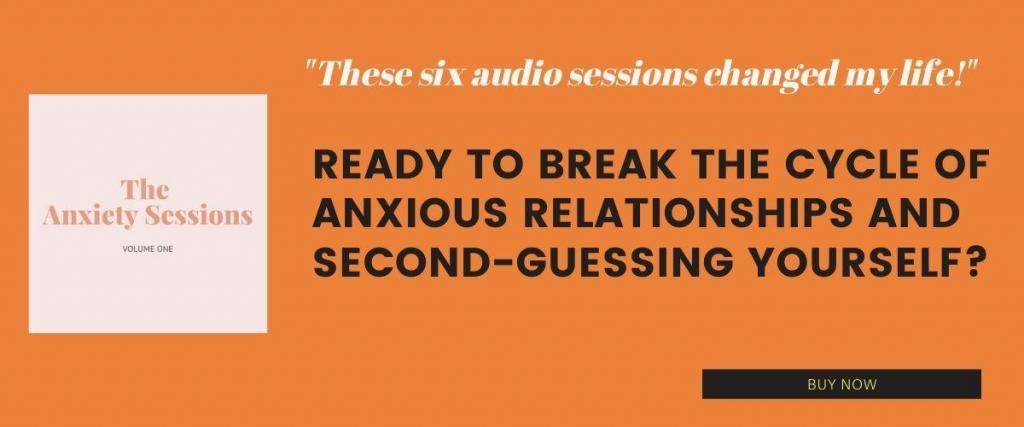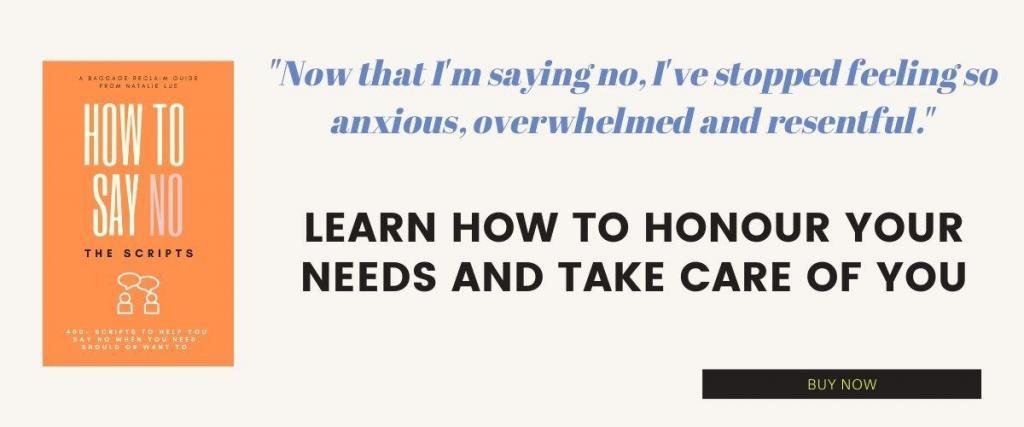A crucial aspect of changing our relationship with no and boundaries is recognising where we do things from a place of obligation instead of desire. Much of what drives people-pleasing habits is a misplaced belief that we have to do what we do. As a result, there’s this sense of not having a choice, letting people down, hurting feelings and failing. We fear that not toeing the party line will cause alienation and abandonment.
We are obliged to do this stuff, we tell ourselves. And even when we’re not actually under obligation, we tell ourselves that we feel obliged.
Now, as humans, we all undoubtedly have obligations, actions we feel morally or legally bound to do. These represent our character and sense of duty as well as what we’ve directly and indirectly committed to. So, for instance, when we agree to do a job, we’re obliged to follow through. We’ve made a commitment, and the other party is obliged to pay us and provide the materials, environment, support, etc., for that to happen. But the fact that we have a job doesn’t, for instance, mean we’re obliged to do anything and everything. That’s not what we committed to. We’re not obliged to give over our personal life or to allow people to abuse their power.
And yet, plenty of us do feel obliged to do things that we don’t want to because we believe that saying no is morally wrong. Ipso facto, we believe that it’s our duty to say yes. Side note, it isn’t.
Any ideas we have about our obligations run right back to childhood. Many of us grew up in a time where parenting was about ‘obedience’. Screw autonomy, feelings, boundaries, needs and values! Instead, the emphasis was on being a ‘good’ child that becomes a ‘good’ person. There was a lot of ‘Do as I say, not as I do‘ and a sense that you exist to please your family. Adults owned our boundaries! Many of us learned that we were obliged to say yes even when our bodies screamed no.
We learned to automatically say yes without considering ourselves because of what are essentially faux obligations.

As a result, it’s why we struggle with boundaries and distrust our feelings. It’s why we might be in soul-sucking careers that our parents encouraged us into. Hell, it’s why we feel disloyal about drawing our line with anyone that reminds us of family.
The thing about doing everything from a place of obligation, real, imagined or outright exaggerated and fabricated, is that it sucks the frickin joy, desire and boundaries out of our life. We end up behaving as if the world is a giant-sized replica of our childhood and that we have no say in our life. Our interpersonal relationships and choices are built on pain, fear and guilt and so we constantly swim in tension, friction and resentment.
By agreeing to do things or, in fact, complying from a place of obligation, we say yes fearfully.
‘Obligation’ causes us to do things, not because we want to but because we think it’s what’s expected of us. We think that guilt, tension or any remotely uncomfortable feelings signify obligation. But all we’re doing is trapping ourselves in doing things inauthentically and unhappily.
Doing things from a place of obligation always, always, always leads to guilt and resentment. And we assume that we’re only obliging ourselves with things we don’t need or want to do, but we’re not. Doing things from a place of obligation taints the things we want to do. We can’t really expect to emotionally blackmail and shame us into doing things and not train us into anxiety-laden yeses! Our body won’t know the difference because we don’t. So if you’ve ever wondered why it feels cumbersome, anxiety-ridden or dulled even when you want to do something, now you know why.
Even if something feels like or is an obligation, see if you can get to a place of wanting to. See if you can get to a place of conscious choice and autonomous giving. And if you can’t? Fulfil the obligation with boundaries. Just because you think you’re obliged to do something, it doesn’t mean you’re obliged to hurt yourself.


 Add to favorites
Add to favorites 